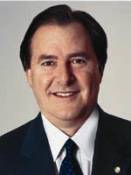Global
Crossing Chairman Denies Inside Information
By The Associated Press
NY
Times, October
1, 2002

Global Crossing Ltd. Chairman Gary Winnick said Tuesday he was not
informed about the fiber optic company's deteriorating financial condition
before he sold $123 million in stock.
Winnick said he took no part in high-level meetings in the spring of 2001
at which executives warned about lagging revenues. He denied that Thomas
Casey, then Global Crossing's chief executive, mentioned looming problems in
their near-daily conversations.
``The suggestion I sold stock based on information not readily available
is not correct,'' Winnick told a subcommittee of the House Energy and
Commerce Committee.
Winnick defended his sale of 10 percent of his Global Crossing holdings
in May 2001 as appropriate. Winnick said he relied on the public assurances
of the company's health provided by Casey and others.
Last week, a former Global Crossing executive testified to the same panel
that he knew Casey's comments to the public were misleading.
Rep. Billy Tauzin, R-La., the committee chairman, told Winnick his stated
ignorance of the financial condition of the company he founded was ``a
little hard for us to understand.''
``The head of the company is about to make a sale and he never hears any
of the warnings,'' Tauzin said, noting that Global Crossing stock started a
slide around the time of the sale that ended in the company's bankruptcy
filing in January.
Congressional investigators are looking into whether Global Crossing and Qwest
Communications engaged in ``sham transactions designed to boost
revenues'' and thus give investors and financial analysts a misleading
picture of the companies' financial health.
Winnick is one of five current and former Global Crossing executives
testifying at the congressional hearing Tuesday. Qwest Communications chief
operating officer Afshin Mohebbi and former chief executive officer Joseph
Nacchio also were scheduled.
The committee earlier heard from a Global Crossing employee who lost her
entire $86,000 retirement savings.
Lenette Crumpler of Rochester, N.Y., said she believed in Global Crossing
because its executives provided frequent reassurances.
``That's why I held on, believing the statements the Global Crossing
executives made when the stock was failing,'' Crumpler said.
Documents released Monday show Winnick was involved in trying to bolster
his company by June 2001, shortly after the stock sale, the last of several
sales that brought him $734 million.
Global Crossing has since been bought by two Asian companies for $250
million, a fraction of the $22 billion in assets listed in the bankruptcy
filing.
Rep. James Greenwood, R-Pa., the investigative panel's chairman, said his
committee's review of documents and interviews with Global Crossing
employees have established that Winnick ``was well aware of Global
Crossing's strategy to use an ever increasing number of swaps to meet Wall
Street's revenue expectations.''
Lawyers for Winnick and the company have consistently painted a picture
of a ceremonial chairman who was not active in day-to-day affairs, including
the company's participation in swaps of capacity between telecommunications
companies, said Ken Johnson, spokesman for the House Energy and Commerce
Committee.
Qwest said last week it was reversing about $950 million in revenue
booked from swaps of capacity on its network and may have to adjust $531
million more in revenue from other sales.
Winnick's efforts to bolster his fading company included reaching out to Enron
Corp., the energy-trading company that also traded telecommunications
bandwidth, and other companies to help Global Crossing close $400 million in
deals in the last half of June 2001. ``I spoke to (then-Enron chief
executive) Jeff Skilling and there are three people vying for the business
-- we're one of them,'' Winnick wrote in an e-mail to Global Crossing chief
executive Thomas Casey in June 2001.
In June 2000, before the glut of fiber-optic capacity soured investors on
Global Crossing and other companies, a Global Crossing executive told
Winnick, Casey and co-chairman Lodwrick Cook that they should move quickly
to sell the company.
``The stock market can be fooled, but not forever, and it is
fundamentally insightful and always unforgiving of being misled,'' wrote Leo
Hindery, who briefly served as Global Crossing's chief executive.
FAIR USE NOTICE: This
page contains copyrighted material the use of which has not been
specifically authorized by the copyright owner. Global Action on Aging
distributes this material without profit to those who have expressed a prior
interest in receiving the included information for research and educational
purposes. We believe this constitutes a fair use of any such copyrighted
material as provided for in 17 U.S.C § 107. If you wish to use copyrighted
material from this site for purposes of your own that go beyond fair use,
you must obtain permission from the copyright owner.
|

